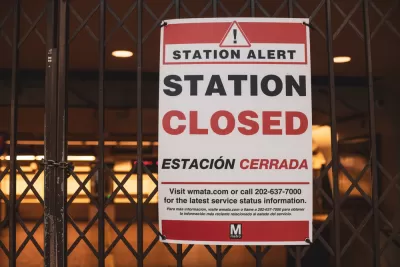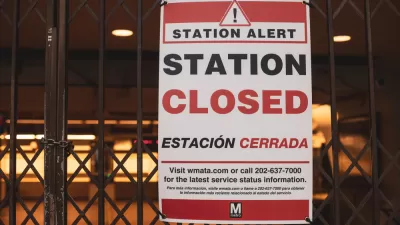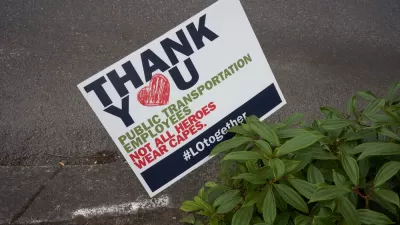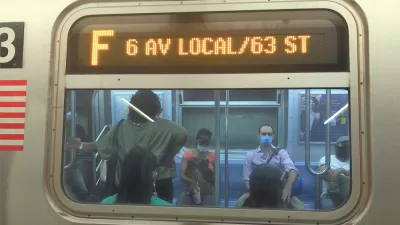D.C. Metro Seeks Public Input on Proposed Service Cuts

Faced with the task of closing a pandemic-sized hole in its budget, the Washington Metropolitan Area Transit Authority (Metro), an is asking for public input on how to cut spending, according to an article by Stephen Repetski.
"In total, the agency says it will need to cut $212 million from this year’s budget, assuming that no more Federal CARES act funding will be made available any time soon," writes Repetski. "The agency is also assuming that local jurisdictions, which contribute to the budget and subsidize service, will have no additional money to provide while dealing with their own budget crises created by the pandemic."
"Metro says it found ways to save $30 million by deferring projects in the capital budget and outlined $42.6 million in “management actions” including some furloughs and layoffs, but says they’ll need to cut the remaining $139.4 million from Metrobus/Metrorail service."
To prepare the public for the cuts, Metro created four proposals for how to cut service on Metrorail, along with a proposal for cuts on the Metrobus service. Metro official are hoping to use public input to decide among the four options.
According to data shared by Repetski, Metrobus ridership has proven much more steady and consistent during the pandemic than Metrorail ridership—a trend that has been witnessed in New York City as well.
FULL STORY: Facing budget cuts, Metro asks riders to select the least bad options

Study: Maui’s Plan to Convert Vacation Rentals to Long-Term Housing Could Cause Nearly $1 Billion Economic Loss
The plan would reduce visitor accommodation by 25,% resulting in 1,900 jobs lost.

North Texas Transit Leaders Tout Benefits of TOD for Growing Region
At a summit focused on transit-oriented development, policymakers discussed how North Texas’ expanded light rail system can serve as a tool for economic growth.

Why Should We Subsidize Public Transportation?
Many public transit agencies face financial stress due to rising costs, declining fare revenue, and declining subsidies. Transit advocates must provide a strong business case for increasing public transit funding.

How to Make US Trains Faster
Changes to boarding platforms and a switch to electric trains could improve U.S. passenger rail service without the added cost of high-speed rail.

Columbia’s Revitalized ‘Loop’ Is a Hub for Local Entrepreneurs
A focus on small businesses is helping a commercial corridor in Columbia, Missouri thrive.

Invasive Insect Threatens Minnesota’s Ash Forests
The Emerald Ash Borer is a rapidly spreading invasive pest threatening Minnesota’s ash trees, and homeowners are encouraged to plant diverse replacement species, avoid moving ash firewood, and monitor for signs of infestation.
Urban Design for Planners 1: Software Tools
This six-course series explores essential urban design concepts using open source software and equips planners with the tools they need to participate fully in the urban design process.
Planning for Universal Design
Learn the tools for implementing Universal Design in planning regulations.
Ascent Environmental
Borough of Carlisle
Institute for Housing and Urban Development Studies (IHS)
City of Grandview
Harvard GSD Executive Education
Toledo-Lucas County Plan Commissions
Salt Lake City
NYU Wagner Graduate School of Public Service





























